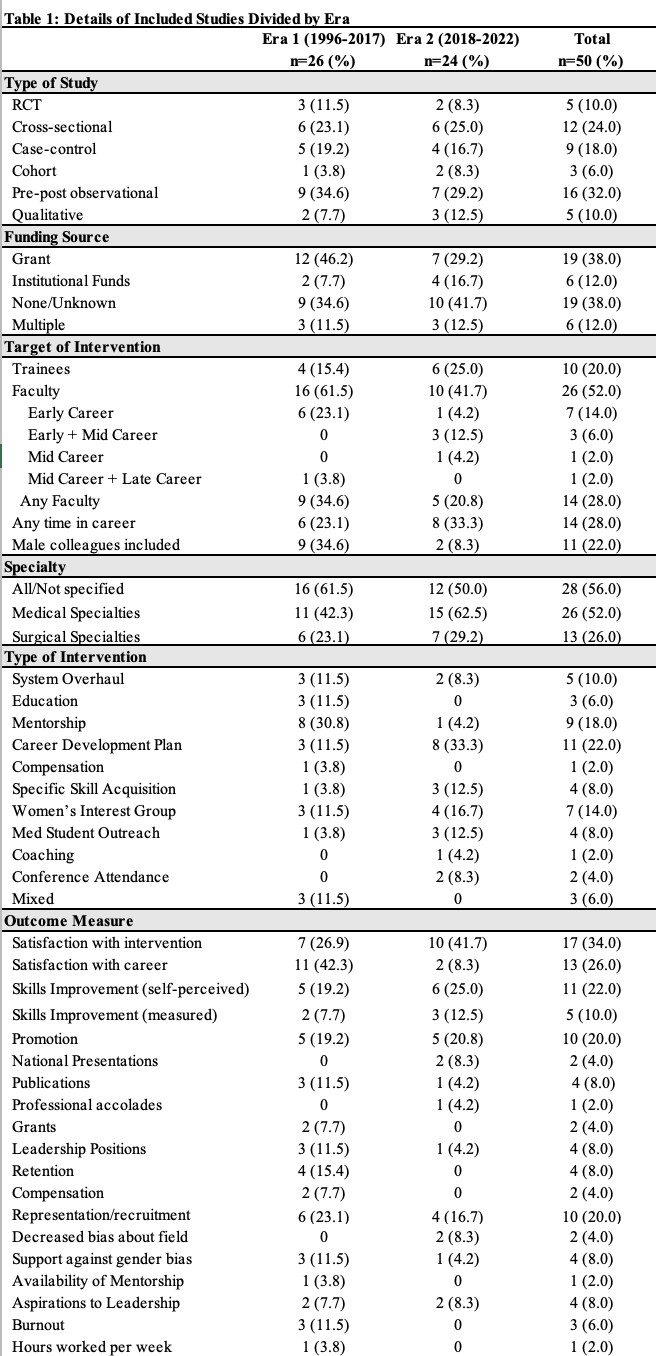Medical Education
Session: Medical Education 1
514 - Advancing Women Physicians in Medicine: A Scoping Review
Friday, May 3, 2024
5:15 PM - 7:15 PM ET
Poster Number: 514
Publication Number: 514.587
Publication Number: 514.587
- NP
Neha J. Purkey, MD (she/her/hers)
Clinical Assistant Professor
Stanford University
Palo Alto, California, United States
Presenting Author(s)
Background: Multiple studies have described the “leaky pipeline” for women in academic medicine, in which women have fewer opportunities for leadership and promotion in academic rank, lower salaries, and higher rates of attrition to other industries compared to male colleagues, despite representing half of medical school enrollment. Prior literature has highlighted biases against women in medicine, but actionable strategies have not been clearly identified in recent years.
Objective: We sought to review published literature of interventions to support the advancement of women in academic medicine. Our main objectives were to identify which groups are the targets of intervention, what types of intervention are delivered, which interventions have demonstrated success, and what metrics are used to define an intervention as successful.
Design/Methods: We conducted a scoping review of all articles describing interventions intended to support women physicians through 9/12/22. Articles were obtained from Pubmed, Embase and Scopus. Articles related to inequities in patient care by gender, interventions related to non-physician healthcare workers, and studies describing sexism without measured solutions were excluded from the analysis.
Results: 2376 articles were screened and 50 were included in the final analysis (Figure 1) with 26 studies published prior to the #MeToo movement and 24 articles published after (Table 1). The number of published articles increased steadily throughout the study period (Figure 2). The most common study type was a pre-post observational model (32%); only 10% of studies were randomized controlled trials. Most studies examined trainees or early career faculty (40%) and an additional 28% studied women physicians at any point in their career. Only 2 articles (4%) looked specifically at mid- or late-career women. Career development programs (22%), mentorship programs (18%), and women’s interest groups (14%) were the most described interventions. Outcome measures were most commonly satisfaction with the intervention (34%), satisfaction with career (26%) or self-perceived improvement in skills (22%).
Conclusion(s): Despite a wealth of articles about women in medicine, we identified only 50 articles of studied interventions to support the advancement of women in medicine. Career development programs report the most success at retaining women and furthering their careers in medicine. To fix the leaks in the pipeline, future studies with rigorous study methods, clearly defined metrics of success, and a focus on women beyond their early career are needed.
Figure 1.jpeg

Figure 2.jpeg
